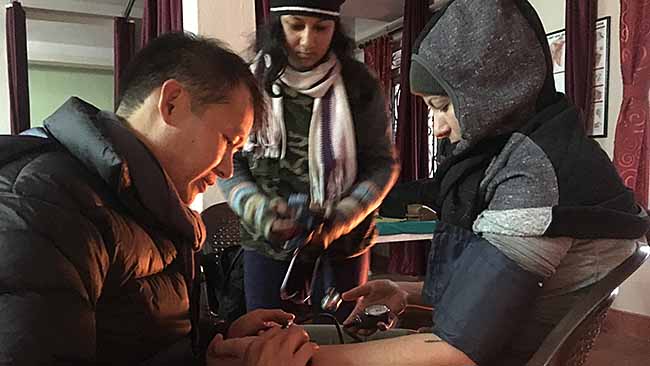
Having lived my whole life in a developed country, with most of my needs magically looked after for me, it was a cultural shock to see the many inadequacies the Nepalese people experience. From the pollution in the air to the chaotic traffic conditions everywhere; from toddlers roaming the roads unsupervised to stray dogs scouring the streets searching for food; it seems there is little regulation among the people yet somehow, they find a way.
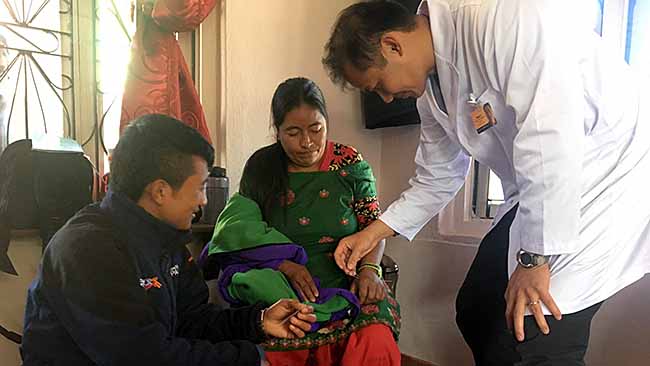
I have had much to learn about the healthcare in Nepal. I have a young, female patient I have been treating in the Bhajrabarahi clinic. She has suffered from epigastric pain for over 15 years. In my first week in Nepal, I had a glimpse of her suffering having had a bout of dysentery from eating the wrong food. I experienced one night of diarrhoea yet she has suffered intermittent diarrhoea for so many years. I could only imagine how she continues to survive. Yet she finds a way.
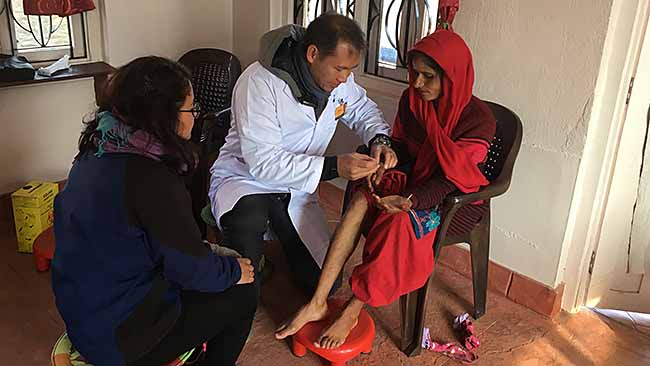
I had another profound experience where a patient was exhibiting stroke like symptoms in the clinic. It was difficult to tell if he was in fact having a stroke at the time so the ambulance was immediately called. I was in fear for his life but compassionate in supporting him all the way. I discovered the ambulance would take an hour to arrive and the nearest hospital was a three-hour trip away. I was shocked beyond belief at the circumstances and questioned how he would ever survive. We finally determined that he had had a seizure and not a stroke. Two days later, he was back into our care. Somehow, despite all obstacles, he found a way.
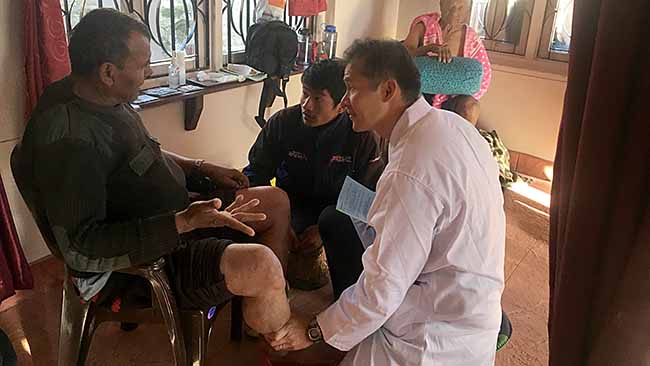
As I walk through the farming fields in Bajrabarahi, I am greeted by hardworking women carrying large baskets of heavy compost strapped to their foreheads. They focus their eyes on the ground in front of them and bend their upper torsos forward, to soldier on to their destination. I am in awe of their physical strength and stamina. However, the daily demands also mean that many of these women develop chronically painful knees and necks. I am grateful to have the opportunity to treat some of these women in the clinic. Their knees will never fully recover, yet they continue to work and they find a way.
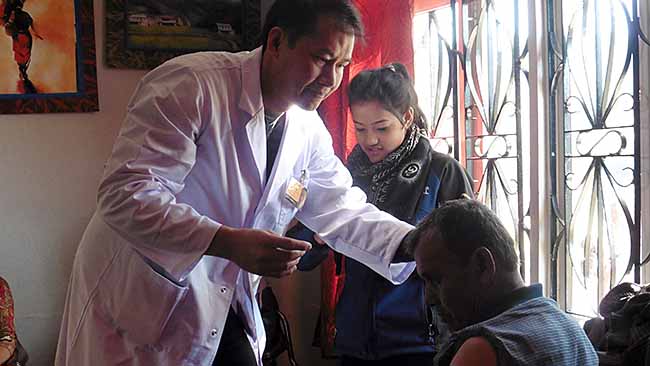
These are some of the experiences I have thus far glistened in the clinic. I feel like a seed that’s in the perfect environment to grow. My growth is not limited to my work as a practitioner, but also as a human being. I honestly felt I was grateful for all that I was blessed with back home in Australia, but I am now infinitely more aware of how much I have. My admiration of the Nepalese people lies in their capacity to adapt to life’s circumstances and their amazing resilience to endure. The warm gratitude and friendly respect I receive from everyone here makes any sacrifice to be here absolutely worth it. --- Hong Lu











